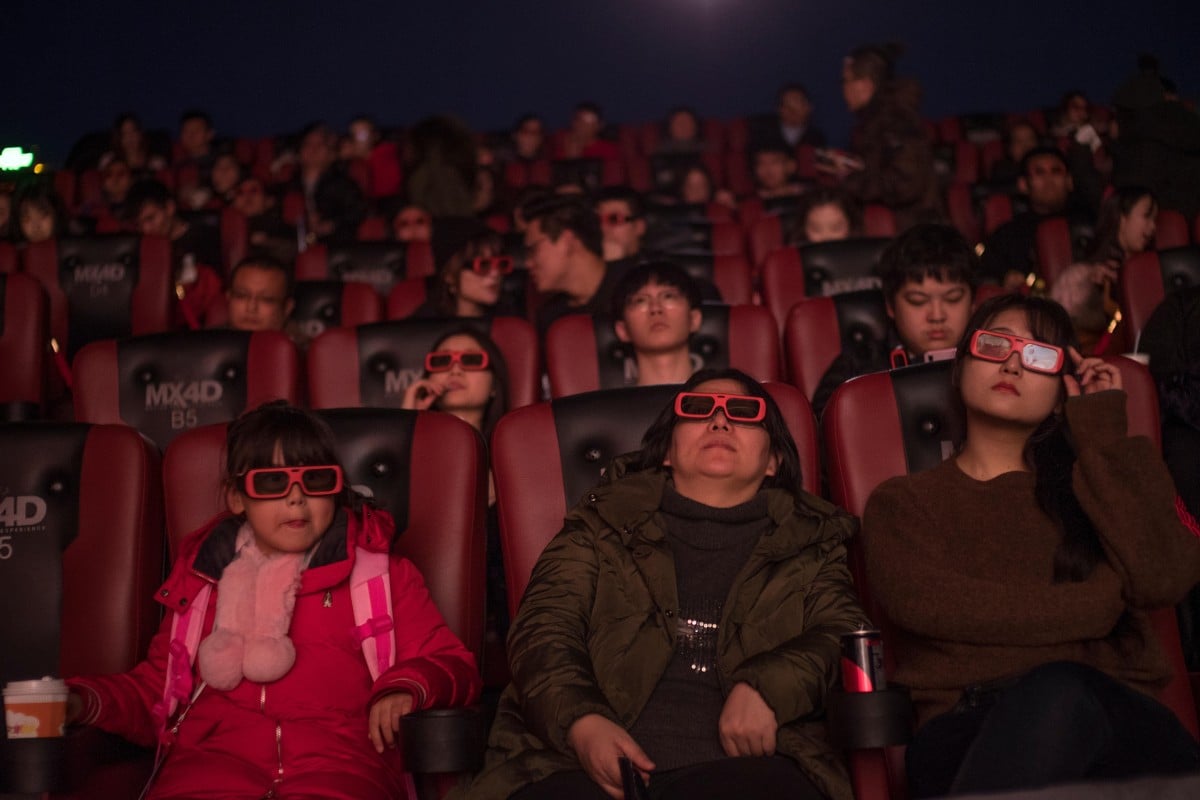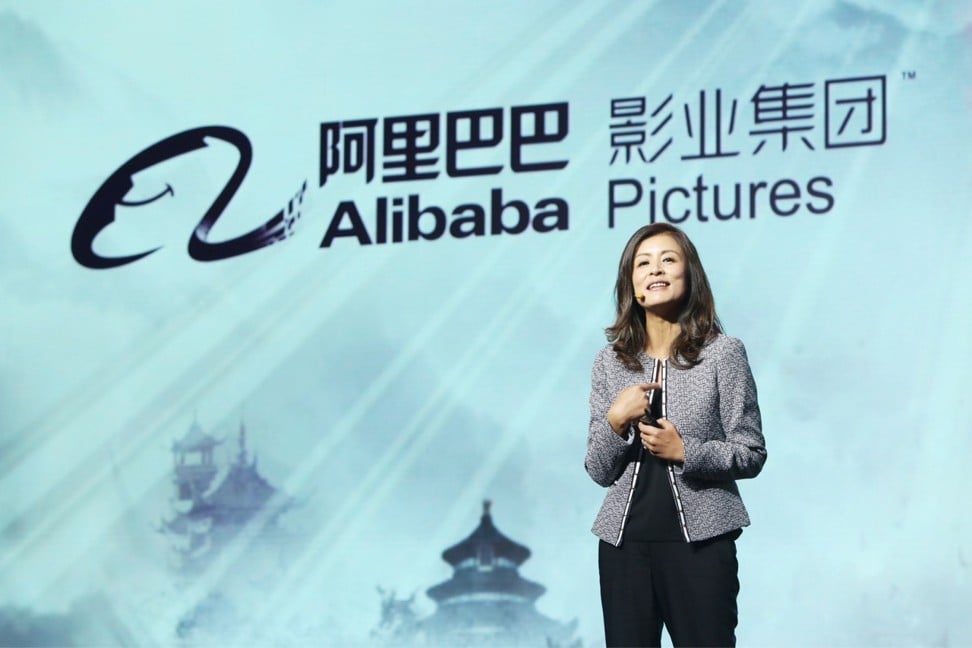Source: SCMP (11/26/19)
How China was sold on Oscar winner Green Book, Bohemian Rhapsody and a Lebanese tragedy – lessons for Hollywood in creative marketing
How did a film about America’s Jim Crow South gross US$71 million in China? Make it about the food. And Bohemian Rhapsody? Make screenings a mass karaoke. Alibaba Pictures president Zhang Wei talks Hollywood executives through its successes, and tells them where they have been going wrong.
By Charley Lanyon

What do Chinese cinema-goers want to see? All kinds of films, says Alibaba Pictures’ Zhang Wei. The company used unconventional marketing to drive ticket sales for foreign films in the world’s biggest movie market this year. Photo: Alamy
For every The Meg, a CGI extravaganza that wowed cinema-goers in China but not as many in the United States, there is a Crazy Rich Asians, which did the complete opposite. Cracking the Chinese film market is still the holy grail for many in Hollywood, and it was, unsurprisingly, a topic of interest at this year’s US-Asia Entertainment Summit, held recently in Los Angeles.
Among the speakers was Alibaba Pictures president Zhang Wei, who shed some light on the subject. She was responsible for the e-commerce giant’s first major Hollywood investment, Mission Impossible: Rogue Nation, and what she said took many by surprise. (Alibaba Pictures is part of the Alibaba Group, which owns the South China Morning Post.)
Zhang said Alibaba Pictures’ biggest crossover success this year had been not an action blockbuster with over-the-top special effects but Green Book, a film whose plot depends on an understanding of US history and race relations, which features no big international names, and whose running time is largely taken up by two men talking in a car.
Green Book made US$85.1 million in North America, and to date has taken nearly US$71 million in China, making it the second biggest grossing Best Picture Oscar winner in China after <>Titanic.

Alibaba Pictures distributed Green Book, starring Viggo Mortensen (left) and Mahershala Ali, in China and noticed viewers focused a lot on the Southern food the characters ate. Its sister food-delivery company offered viewers discounts to drive ticket sales. Photo: Alamy
If there was one takeaway Zhang wanted to impress on her audience, it was that “what do Chinese audiences want?” is a question that is not only impossible to answer, but it is the wrong question to be asking in the first place.

Mortensen and Ali in Green Book. The film was Alibaba Pictures’ biggest crossover success of 2019, grossing US$71 million so far in China. Photo: Alamy
Already huge, the Chinese audience is only going to keep growing. Between 2008 and 2018, the number of movie screens in China climbed from 4,000 to more than 60,000. Zhang has shown that, while certainly there is a desire for big-budget superhero pictures, there is also a historically large number of people in China who want to see quieter films, independent films, art films, and films from all over the world, not just Hollywood.
Following a year of surprise successes, Alibaba Pictures is gaining a reputation as a company that can crack the China conundrum.
The trick, according to Zhang, is twofold and not really a trick at all: first, don’t underestimate your audience, and second, when it comes to marketing, don’t be afraid to get creative.

Zhang Wei, president of Alibaba Pictures. Photo: SCMP
To drum up interest in foreign films, Alibaba engaged in marketing gimmicks that seem more suited to the era of P.T. Barnum.
“For example, Amblin’s 2017 film A Dog’s Purpose is a great example of how we come up with creative offline events to drive buzz online,” says Zhang. (Alibaba Pictures has a stake in Steven Spielberg-owned Amblin Partners.)
“We held a screening for people to bring their dogs to walk the red carpet and watch the movie together with their dogs in the theatre. We partnered with a pet adoption organisation and held offline events in these adoption centres in cities around the country.”

Alibaba Pictures’ first major Hollywood investment was Mission Impossible: Rogue Nation. Photo: Alamy
The movie was a great success, says Zhang, though it grossed only US$188 million worldwide. “To everyone’s great surprise the China market contributed US$88 million, or 47 per cent of global ticket sales.”
The company pulled similar stunts while marketing Bohemian Rhapsody, turning cinema screenings into mass karaoke events by encouraging audience members to sing along with the film.
While antics like those wouldn’t work with serious films such as Green Book or the independent Lebanese tragedy Capernaum, Alibaba Pictures still found great success thinking out of the box.
“Green Book seems like a very atypical choice for Chinese audiences. It’s a film about the Jim Crow South, a context that is not familiar to most Chinese movie-goers,” says Zhang. “But underneath that historical backdrop is a very relatable, universal story of loneliness and unlikely friendship.”
The company considered adding in text to explain the story’s historical context to Chinese audiences, or even editing the movie and changing some dialogue. But in the end, it left it unchanged, and dedicated its marketing of the film entirely to one line from the movie: “The world is full of lonely people afraid to make the first move.”

A scene from the film A Dog’s Purpose. To market the film to Chinese audiences, Alibaba Pictures held a screening for people to bring their dogs to walk the red carpet and watch the movie together with their dogs.
“We had a hunch this would resonate in China,” says Zhang. The company translated that one line into Chinese without context and plastered it on billboards throughout China. People were moved and mystified, and the buzz it built online was enormous.
If the history was lost on Chinese audiences, they connected to something that American audiences likely took for granted: the Southern cuisine the characters were shown eating.
“We noticed that a lot of the social media chatter was along the lines of – watching Green Book made me hungry!” says Zhang. “Food is such an important part of this movie – the pizza, the hot dogs, the fried chicken! One of the businesses in Alibaba’s ecosystem is ele.me, a food delivery platform. We partnered with merchants on ele.me, so anyone who had seen the movie got a 30 per cent discount off any of the food items featured in the movie.”
“The film completely shattered expectations in China,” said Zhang. “We did US$70 million in box office sales, which was huge, nearly quadrupling that of The Shape of Water, which won [the] Best Picture [Oscar] in 2017.”
Another film, Capernaum, which Alibaba took to China, also seemed an odd choice. A small, artful film about the brutality of existence in which a child tries to sue his parents for being born, it is emotionally unrelenting and depends deeply on the culture of Lebanon.
In China, the colour of the posters was changed and warmed up, the featured image was taken from a single frame in the movie where the main character smiled, hinting that the film would be uplifting.

A still from Lebanese film Capernaum. Photo: Fares Sokhon
Alibaba then mobilised its expansive online platform to make the hashtag #ICriedWatchingCapernaum the number one trending topic on the short-video platform Douyin.
In the end, this sad, quiet, meticulous film went on to gross US$88 million in China, 47 per cent of its global ticket sales.
So what do Chinese audiences want? Something, Zhang explained, that this room of Hollywood’s biggest entertainment executives should have known already: “They want good stories that make you feel something.”